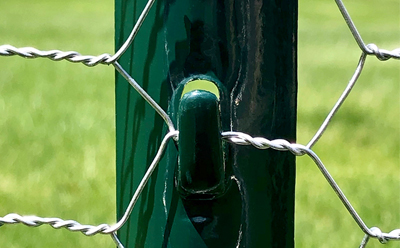Understanding the Benefits and Applications of Screw Type Ground Anchors
Dec . 03, 2024 16:53
Screw Type Ground Anchors A Comprehensive Overview
Ground anchors play a crucial role in ensuring stability and safety in various construction and engineering projects. Among the various types of ground anchors, screw type anchors have gained considerable popularity due to their efficiency and ease of installation. This article delves into the features, benefits, applications, and installation techniques associated with screw type ground anchors.
What are Screw Type Ground Anchors?
Screw type ground anchors, also known as screw anchors or helical anchors, are a type of deep foundation element designed to provide anchorage in soil. They consist of a steel shaft with one or more helical blades that are welded to the shaft. When these anchors are rotated into the ground, the helical blades cut into the soil, providing immediate resistance and stabilization.
Benefits of Screw Type Ground Anchors
1. Ease of Installation One of the most significant advantages of screw type anchors is their straightforward installation process. They can be installed using simple machinery, such as a skid-steer or excavator with a hydraulic auger attachment. Unlike traditional driven piles, there’s no need for pre-drilling or extensive labor, making them a cost-effective solution.
2. Immediate Load Bearing Capacity Screw anchors provide immediate load-bearing capacity once installed. This characteristic is particularly beneficial for projects that require quick stabilization, such as during storm preparations or when dealing with uncertain weather conditions.
3. Minimal Environmental Impact The installation process of screw anchors is less disruptive compared to other anchoring methods. Since they don’t require extensive excavation or soil displacement, they present a more eco-friendly option and help maintain the integrity of the surrounding soil.
4. Versatility Screw type ground anchors can be used in a variety of soil conditions, including clay, silt, and even rocky terrains. Their adaptability makes them suitable for different types of structures, from residential buildings to heavy infrastructure projects.
5. Long-Term Stability These anchors can be designed to accommodate dynamic loads, making them ideal for applications in areas prone to high winds, seismic activity, or other forces that may compromise stability.
Applications of Screw Type Ground Anchors
Screw type ground anchors find applications in numerous fields, including
- Residential Construction They are often used to anchor decks, fences, and retaining walls, ensuring that these structures remain stable over time.
screw type ground anchors

- Commercial Projects In commercial buildings, screw anchors can be utilized for foundations, adding an extra layer of support necessary for larger structures.
- Utility Installations They are employed to secure utility poles and telecommunications towers, providing the necessary support against natural forces
.- Agricultural Uses Farmers utilize screw anchors to stabilize high tunnels, greenhouses, and other agricultural structures, ensuring they withstand wind and other environmental challenges.
Installation Techniques
The installation of screw type ground anchors generally involves the following steps
1. Site Assessment Before installation, a thorough site assessment is conducted to understand the soil conditions and structural requirements.
2. Anchor Placement Depending on the load requirements and soil condition, the appropriate length and diameter of the anchor are selected. The anchorage location is marked.
3. Installation Using a hydraulic post driver, the anchor is rotated into the ground. Care should be taken to maintain vertical alignment to ensure optimal load distribution.
4. Load Testing After installation, load testing may be performed to verify the anchor’s performance and to ensure it meets the design specifications.
5. Finalization Once testing is complete, the anchors can be connected to the structure, completing the stabilization process.
Conclusion
Screw type ground anchors offer a reliable, efficient, and environmentally friendly solution for a variety of anchoring needs. Their ease of installation, immediate load capacity, and versatility make them a preferred choice for many contractors and engineers. As the demand for effective anchoring solutions continues to grow, screw type ground anchors are poised to play an increasingly significant role in the field of construction and civil engineering. Whether for residential construction or large-scale commercial projects, these anchors provide the stability necessary for a safely designed environment.




















